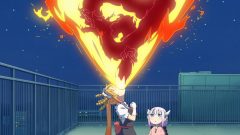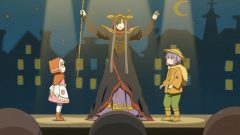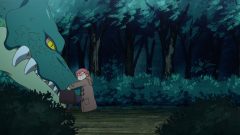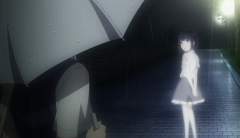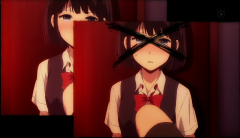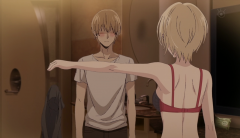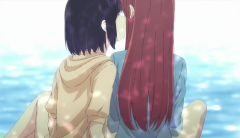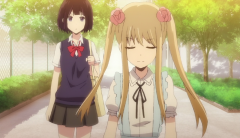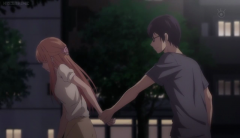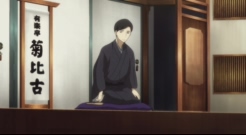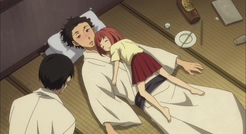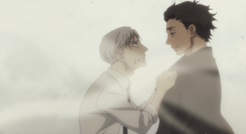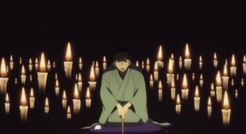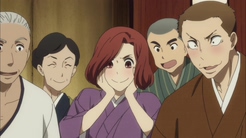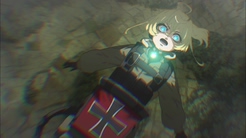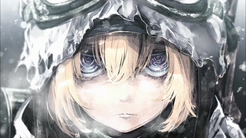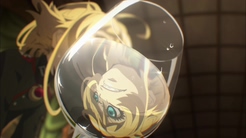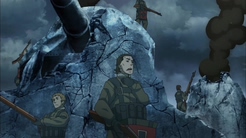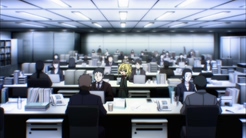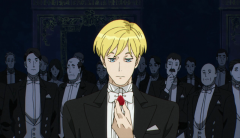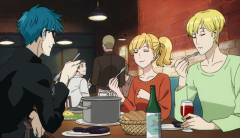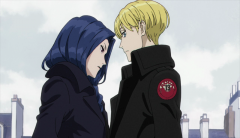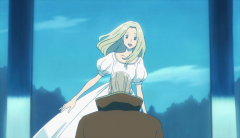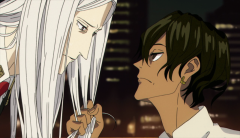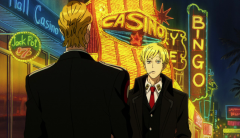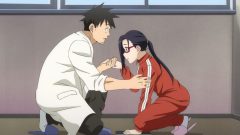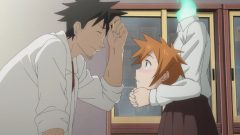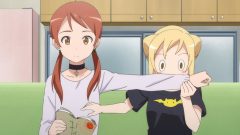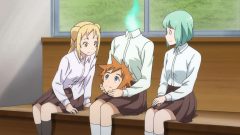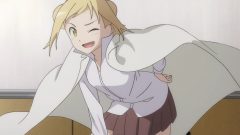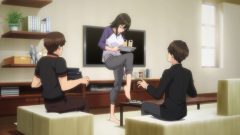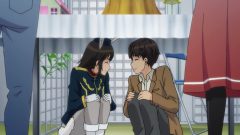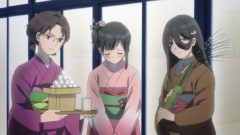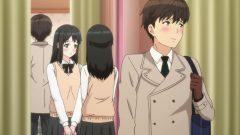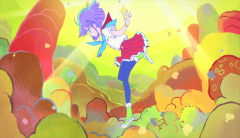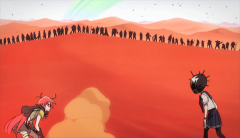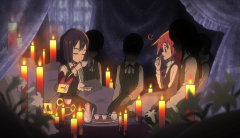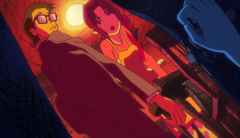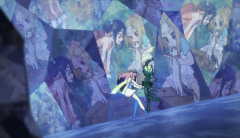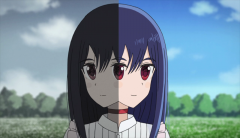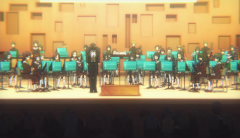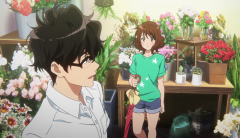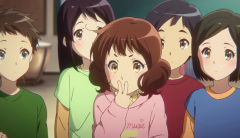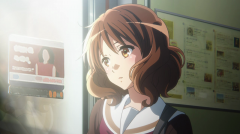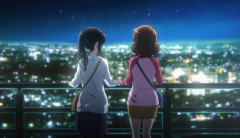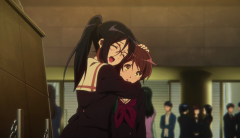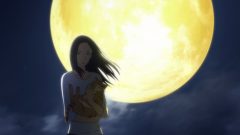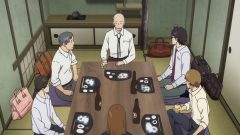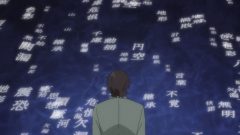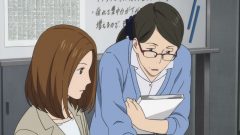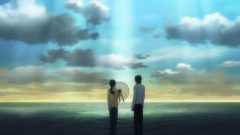I remember back in the first impression of last Winter season, I regarded Demi-chan as a better Monster Girls slice of life subgenre over this one. But as the season progressed, while Demi-chan run out of its steam quickly, this one picked up its pace after an underwhelming first episode to become a much more worthy title of last season, to the point many critics (according to ANN critics) hailed it as one of the best show out of 2017 Winter season, behind only to the modern masterpiece Rakugo. Do I agree with that consensus? No, God, no. They obviously don’t watch ACCA, and I would argue Scum’s Wish or Tanya are better options. Dragon Maid is a warm little show that have some neat things to say about dysfunctional family and a high production values for its genre, but it never raises above exceptional level to me.
In fact, now looking back, the premiere episode of Dragon Maid was a bad representation of a whole show. The premise of a female dragon decides to live in a human house as a maid and devotes herself to that role, loves her host unconditionally is a wish-fulfilment and convenient one. That episode also played up the slapstick tone of dragon making a mess trying to fit in with human environment, which became less and less prominent as the show went on. They also played up the comedy which was a missed opportunity because while Dagon Maid is very solid at humor, they never meant to be in a forefront. The show improved dramatically from second episode with the introduction of Kanna and the show shifted the focus to slice-of-life approach, but the first episode already did the damage to discourage anime watchers into this show.
The humor of the show is on the risqué and bawdy side and I really do prefer this type of humor than over the top silliness, but I also agree that sometimes they got too carried away. The yuri love at the centre between Tohru and Kobayashi-san is well grounded; but the same can’t be said for the running gags of yuri undertone between two primary schoolers of Kanna and Riko (sometimes Kanna is a perpetrator for example, in which she “innocently” staying too close to Riko). More cringe-worthy, Lucoa and Shouta running gags of gigantic bouncing boob gave a huge backlash to more serious anime watchers as it appears the older (dragon) woman sexually assaulted the young shy boy. Well, for the love of God I’m not that serious about the issue but bouncy boob jokes do get old fast.
But at its core, Dragon Maid is a sensitive portrayal of a dysfunctional family and what it means to share happy moments with the person you love. Kobayashi-san, a thirty something workwoman who prefer to be left alone than having any real relationship is a perfect protagonist for this tale about family. Sometimes she remarks that it’s her who unsure how to express her feeling. Most of the time she doesn’t contact her real family not because they are having a tense relationship, it’s just her who feels detached from the family. There’s a real, honest look at the heart of modern day lifestyle, when individual starts drifting away from any real connection and this series is all about establishing that real connection.
The second theme Dragon Maid of underlined is the very definition of “family” and “where we belong”, as Tohru, who born a dragon, comes to live together with a human. The show addressed many times that the human world isn’t Tohru’s place, and because human’s and dragon’s lifespans are vastly dissimilar, what will happen to Tohru once Kobayashi reaches her end? Does lingering on the life that clearly don’t belong to you worth taking at all? As this series says, yes, because feeling is true. The other theme about family this show also addresses is the parental relationship, especially those from Kobayashi-san and Kanna. There are many touching moments where Kanna looks up to the protagonist as her mother figure (as a dragon she was exiled from her family) and Kobayashi-san tries her best to fit in that role. Secretly buying the stationary that she loves, tries to finish work early in order to aatend her play. Those intimate moments come from a very real place that doesn’t matter if the premise is phony (dragon appears as maid girl, duh), as long as your heart is in the right place you still hit jackpot.
True to its “sharing the moments together” theme, many of the show’s best sequences lie in the slice-of-life activities the characters have with each other, be it as bizarre as dragon’s fights, anime convention (where real monsters appear as themselves), or as mundane as spending a christmas holiday in kotatsu, preparing dinner or having a sport festival (there must be one in every slice of life high school show huh?) or performing a play together. The cast is mostly likable, especially Kanna who takes the anime world by storms. I also find the different length in each segment to be effective. Sometimes it plays for entire episode, sometimes it chops off and we have 4-koma like format, which actually adds to the final punch and the laid-back atmosphere of the show.
As KyoAni is the studio behind this show, it goes without saying that the show have a great treatment in productions values. The characters facial expressions are varied and spot on, the animation- where it needs to be, especially during dragon’s battles, is energetic and exciting. From what I gathered the studio actually modified a bit in its last 2 episodes from the manga source, which for me enhanced the main emotional core and successfully ended the show by overcoming its biggest external and internal threats.
All in all, Dragon Maid is an enjoyable anime. The show has relaxed atmosphere, engaging chemistry between its main cast, great animation and have some deeper and more intimate moments than its usual slice of life fare. Still compare to KyoAni canon I can’t help but think this is an inferior one with questionable fanservice. It’s heartwarming but lack certain quality to raise above the rest of a pack.



